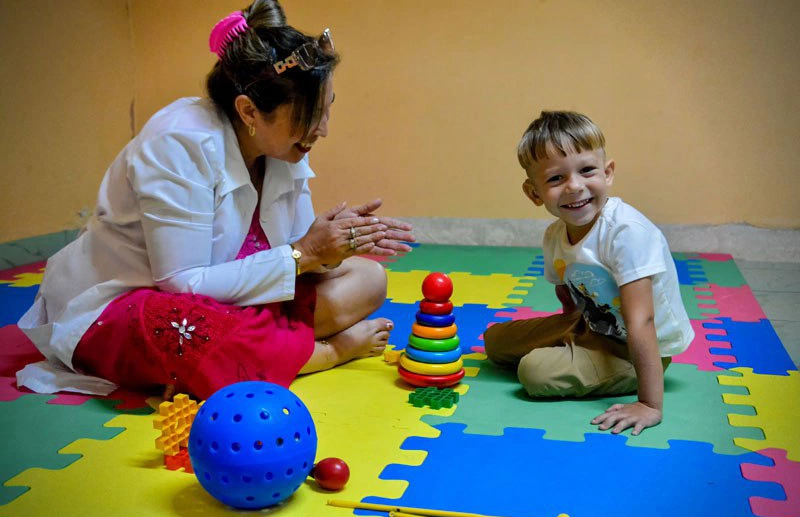The economic, commercial, and financial blockade imposed by the United States government against Cuba is affecting the cochlear implant program in the province of Holguin. A therapy that benefits hearing-impaired children in this eastern region.
Yadiannis Quintana Noris, a specialist at the Hearing Center, told CNA that patients are evaluated from an early age to rule out diseases that contraindicate this type of procedure.
Also she indicated that, once the procedure is performed, the list of eligible cases is registered in a national database. But delays in the process arise due to Cuba’s inability to access these electronic devices.
The expert pointed out that more than a third of the required components are of North American origin, and purchases are made at high prices and through third countries. Which means that a child may arrive at the hearing center at age two and receive the implant between the ages of four and five. The cost of replacement parts also increases after patients have received the implant. Creating limitations in communication and social integration, Quintana explained.
Futhermore the cochlear implant is part of a national program that benefits children with severe or profound bilateral hearing loss. This program uses an electronic device to replace the function of the damaged inner ear.
Through rehabilitation therapies, children can perceive sounds and develop language. Therefore, the younger the child, the greater the likelihood of achieving a better quality of life.
With information from the Cuban News Agency
- Experts Warn About Sleep Quality When Sleeping with Your Phone - 25 de February de 2026
- Communications Sector in Holguin Rejects Blockade Against Cuba - 25 de February de 2026
- Campaign in Holguin Engages Youth Against Drug Use - 25 de February de 2026

